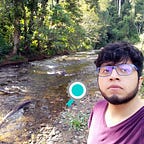Your personal brand
There was a lot to study this month, it’s true that one of the activities last phase is to study for this phase, and if you want to make more of that phase and this to have an advantage I recommend you to read “Cracking the coding interview”, this is one of the resources for this phase but I think it should be reading for every programmer that want to be ready for interviews.
It teaches you many basic concepts about Computer Science, Algorithms, some good practices and how to handle an interview. There are concepts like Data Structures, Pattern Design but not only that, after every chapter there are exercises to help you to hone your knowledge and test your problem solving skills. Every chapter guides you through the path to learn and even if you have a CS background you can still to go a little deeper in some topics.
“Elements of programming” is probably the book I learn the most, mainly because it can be for your language, Java, C++, Python. The reason I like it is because it goes very deep into the topic above. “Cracking the coding interview” is for general knowledge, and probably for some people that’s enough. Python is a good language, you can do a lot just with one language, from Data Science to Web Development, but my problem is that many of the libraries and modules I use most of the time are too convenient and that makes solving problems easiest. But in this book it doesn’t only teaches you the basics of how some of those modules works but also goes into the complexity of more common problems and some problems that may seem tricky but can actually help you to be able to recognize more problems.
The other source of study for this phase is Hacker Rank, there’re a lot of topics and problems to solve and if you solve them as you’re reading the book, it can help you to understand better. There’re a few topics that aren’t asked to learn for this phase but that you will eventually have to learn as it’ll become necessary, such as Greedy Algorithms or Dynamic programming.
Both books cover those topics and to be honest until now I couldn’t remember a case where I’ve to use a Greedy Algorithms and Dynamic programming other than get the minimum area possible from a set of measures, the famous backpack problem, the coin’s problem or to improve the performance of some algorithms such as a recursive factorial function or Hanoi’s tower.
Lastly I want to give some advice for the interview, and that’s how important soft skills are, they are very important here, and that’s is because in the future you’ll need to work with other teams and being able to recibe feedback and improve from that.
Another tips is, and that is actually pretty obvious, to not only answer the question, being able to extend you answers and give examples of what is good practice and what is not gives you extra points because that show experience.
One of my weakness during the interviews was that my answer are very short and often don’t know how to say I don’t know something, its no only say it and that's it, showing interest or even if you have a little experiences can make the difference in the end.
And finally, don’t be afraid of asking questions, to anyone. You’ll see many people asking questions often, from the basic to some more advanced topics, one of the principles here is “Being curious”. Asking questions not only helps you but can also help someone else that may have the same problem. The mentors system is for that purpose, to talk to someone when you don’t know what to do, even the education team is there to help you this is a safe place so always be curious!
Good luck!
